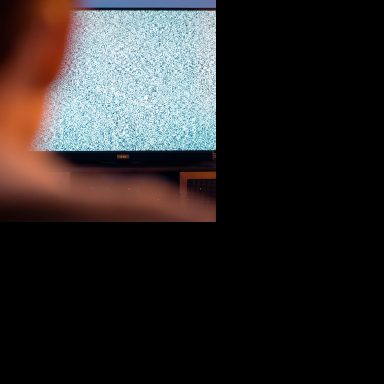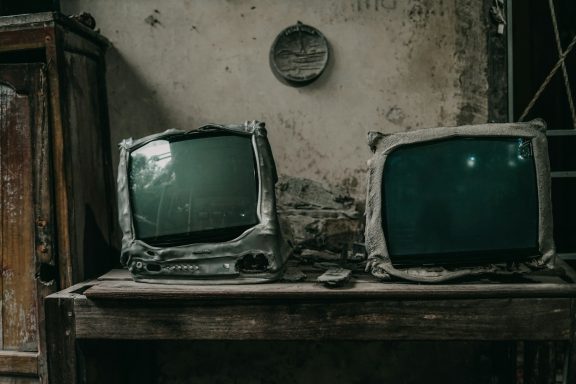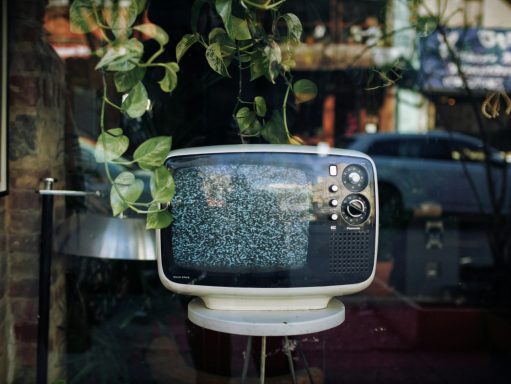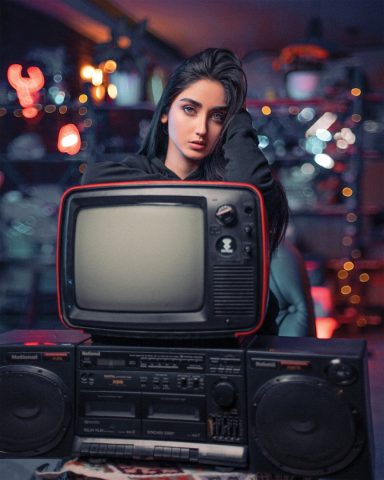
Unveiling Reality: The Role of Gender in Television
Explore the Intersection of Reality TV and Patriarchal Structures
In recent years, reality television has proliferated, reshaping our cultural landscape with its unique blend of entertainment and social commentary. This section aims to delve into the critical relationship between reality TV and the patriarchal structures that often underpin its narratives. By examining popular reality shows, we can uncover how they reflect, reinforce, or challenge traditional gender roles within our society.
This exploration not only highlights the dominant portrayals of masculinity and femininity but also interrogates the ways in which these portrayals influence viewer perceptions of gender dynamics. Through analyzing various programmes, we aim to understand how these representations can perpetuate stereotypes or offer new perspectives on gender identity and expression. Reality TV becomes a powerful medium for societal reflection, making it essential to scrutinize both its content and its impact.
As we embark on this journey through the world of reality television, we will spotlight diverse shows that encapsulate the complexities of cultural identity and gender issues. From competition-based series to docuseries that explore personal stories, this blog will provide insights into how these programmes engage with and challenge the patriarchal narratives that often dominate them. Join us as we uncover the layers of meaning behind the glitter of reality TV.

Exploring Global Identity through Media
Unpacking the Nuances of Cultural Narratives
Every show pushes the same storyline: women exist to be chosen. On The Bachelor, thirty women are paraded like contestants in a livestock show, competing for male approval. On Love Island, the “bombshell” men get to walk in late and pick whichever bikini-clad woman they fancy, while the women nervously wait like unchosen schoolgirls at a dance.
I remember watching Love Island UK one summer when I was dealing with the fallout of a relationship where I constantly felt "not enough." I’d sit on my sofa, watching women do their hair three times a day and worry about being “mugged off,” and realise I was doing the exact same thing in real life. Apologising for my emotions, trying not to be “too much,” shrinking myself to seem more palatable—because that’s what women are taught to do. Over and over.
Reality TV told me that being desirable meant being quiet, cute, and dependent on a man’s validation. It wasn’t entertainment—it was a manual for my own oppression.
Unpacking Gender Politics in Reality TV
Reality television often presents a skewed mirror to society, illustrating not just entertainment but also the deep-seated beliefs about gender roles and ideals of beauty. Shows such as Love Island and The Bachelor do not just captivate audiences with their dramas; they reinforce traditional gender norms and expectations. These portrayals prompt audiences to reflect critically on the implications of celebrating superficial relationships and unrealistic standards.
Global Identity, Whitewashed and Sexualised
Central to the appeal of reality TV is the depiction of beauty as a currency for social status and success. Participants in these shows are often selected based on their adherence to narrow beauty ideals, perpetuating the notion that worth is tied to physical appearance. This critique sheds light on the harmful connotations of these ideals, particularly how they affect young viewers' self-esteem and perception of self-worth.
Reality TV sells a Westernised, highly filtered version of womanhood to the whole world. The women are thin, usually white or racially ambiguous, heavily filtered, surgically altered, and always, always sexually available—but only in a way that doesn’t threaten male control.
The Manufactured Myth of Empowerment
Let’s talk about faux empowerment. You’ll hear people say, “But these women *choose* to go on these shows. Isn’t that feminism?” No. Choosing to be exploited isn’t liberation—it’s survival in a system that punishes women who step outside the mold.
The worst part? The illusion of choice is used to silence critique. When women are shamed or edited into villains (cough every outspoken woman on any reality show ever), it’s blamed on “editing,” or “drama.” Not on the structure of a show designed to punish women for having boundaries.
One year, I watched a contestant on Love Island get absolutely destroyed by the public for standing up for herself. She said no to a man’s advances, didn’t play nice, and suddenly she was labelled “cold” and “manipulative.” I felt a pit in my stomach watching it unfold. I’ve been called those exact words for simply refusing to tolerate nonsense in a relationship. Reality TV reflects patriarchy’s favourite weapon: vilifying women who won’t play nice.

I live in a working-class area of England. I’m disabled. I’m not rich, white, or airbrushed. The women I see on TV don’t look like me—but worse, they tell me that my value is negotiable. That unless I fit the “hot girl” mould, my voice doesn’t matter. The same women get cast over and over again, reinforcing one message globally: if you want to be seen, be small, be quiet, be hot, and don’t dare want too much.
As society progresses, so too does the conversation surrounding gender and representation in media. The movement towards more inclusive and authentic portrayals in television seeks to dismantle the harmful narratives sustained by reality shows. This final section outlines potential pathways for reform and the importance of uplifting voices that challenge the status quo, fostering a media landscape that truly reflects the diversity of human experiences.
Sex Sells—But Only on Patriarchal Terms
Let’s not ignore how sex is weaponised in these shows. Women are expected to be sexually available but still “wifey material.” Explore your sexuality too much and you’re a “slag.” Hold back and you’re “boring.” There’s no winning.
Meanwhile, men get praised for sleeping around, being emotionally vacant, and “playing the game.” These aren’t just character tropes—they’re global lessons broadcast into millions of living rooms. I once dated a guy who genuinely used phrases from *Love Island* in real life. “Testing the waters,” “having a bit of banter,” “you’re getting too deep.” I wasn’t dating a person. I was dating a man raised on performative masculinity sold to him by reality TV.
Get In Touch With Sovereign Edit
At Sovereign Edit, we believe that exploring the intricate themes of art is a collaborative journey that thrives on audience interaction. Engagement with these themes would not be complete without your voice. We invite you to share your thoughts and experiences related to reality TV and its impact on society and culture. Your insights are invaluable as we foster a community dialogue centred around these engaging topics. Whether you have a story to tell, an opinion to express, or simply wish to join the conversation, we would love to hear from you. Connect with fellow enthusiasts and contribute to a vibrant exchange of ideas that enriches our understanding of the arts. Please use the contact form below to reach out with your comments or questions. Together, we can build a dynamic space for discussion and exploration within the realm of reality television and its artistic implications.
Gallery of Reality TV Moments
Welcome to the Gallery of Reality TV Moments, a curated collection by Sovereign Edit that showcases iconic stills from various reality television shows. This gallery highlights transformative scenes that resonate with the themes explored in our blog, namely representation and identity. Each image serves as a visual touchpoint, inviting viewers to reflect on the narratives presented within reality TV and their implications in contemporary culture. Reality television has the power to mirror societal values, challenge stereotypes, and foster dialogues about personal and collective identities. Through these carefully selected stills, we aim to elevate critical conversation around how diverse experiences are portrayed and perceived in media. As you browse through this gallery, consider the broader implications of these moments and their influence on our understanding of self and others in an ever-changing world.
Exploring the Intersection of Reality TV and Identity
Welcome to the ‘Insights on Identity and Reality TV’ section of Sovereign Edit. Here, we delve into the complex dynamics between reality television and its influence on societal standards. This engaging grid combines thought-provoking images with insightful texts to unpack how reality TV shapes and reflects personal and collective identities, offering a multidimensional understanding of the issue.

Reality TV as a Mirror of Society
Reflecting Realities
Reality TV often serves as a mirror, showcasing various aspects of societal norms and expectations. This subsection critically examines how the portrayals of individuals and communities may affirm or challenge existing societal standards. Through curated images and analytical text, we reveal the subtle and overt messages embedded in these influential narratives.

Cultivating Cultural Narratives
Diverse Voices, Diverse Stories
In this section, we highlight the importance of diverse representations within reality TV. By showcasing the varied experiences and stories of different cultural groups, reality television has the power to broaden viewers' perspectives and foster understanding. Our visual and textual content aims to celebrate the richness of these narratives and their impact on identity formation.

The Digital Influence of Reality TV
Shaping Identities Online
The advent of social media has transformed how reality TV impacts identity. This subsection explores the interplay between televised imagery and online persona, revealing how social platforms amplify certain narratives while negotiating societal standards. Through our engaging visuals and insights, we offer a critical look at the digital adoption of reality TV narratives.

Challenges and Critiques
Navigating Controversy
As we engage with the impact of reality TV on identity, it is imperative to address the criticisms surrounding the genre. This section unveils the challenges posed by stereotypical portrayals and the authenticity of representations. With rich visual content and keen analyses, we encourage a thoughtful discourse on the responsibility of media in shaping societal views.
Unpacking Reality: The Dual Role of Television in Society
In our contemporary landscape, reality television occupies a unique space that often blurs the lines between entertainment and social commentary. At Sovereign Edit, we delve into the multifaceted implications of reality TV and its intersection with gender politics. This section brings together a variety of scholarly essays and activist viewpoints that articulate how reality TV not only reflects patriarchal values but also serves as a platform for challenging these norms. Through critical examination, we aim to unravel how queer narratives are sometimes sidelined or erased within these formats, yet also discover how they resonate as acts of resistance.
Scholarly Insights: Theoretical Frameworks
We present a selection of academic writings that explore the theoretical underpinnings of reality television. Scholars will discuss frameworks that dissect how patriarchal structures are maintained or subverted within popular culture. These texts provide a rigorous analysis of content and audience reception, offering new lenses through which to view the societal impact of these shows.
Activist Perspectives: Voices from the Community
Activists and community leaders share their insights on the influence of reality TV on gender dynamics and queer representation. Their contributions highlight lived experiences, illustrating how these programmes can both perpetuate harmful stereotypes and foster a sense of identity and belonging among marginalised groups. Through first-hand accounts, this section illuminates the complex ways that reality television affects real lives.
Challenging Norms: Queer Narratives in Reality TV
This subsection is dedicated to examining queer narratives within reality television programming. It discusses instances where queer identities are foregrounded and celebrated against a backdrop of often oppressive norms. By showcasing meaningful representations, we reveal how moments of resistance emerge, pushing the boundaries of traditional storytelling in the media.
Resistance and Erasure: A Critical Analysis
Here, we critically analyse instances of queer erasure within reality TV shows, where narratives are sanitized to fit mainstream audience expectations. This exploration offers a cautionary tale of the importance of authentic representation and the impact that selective storytelling has on public perception and understanding of queer issues. Through this lens, we challenge readers to question the status quo and advocates for a more inclusive media landscape.
©Copyright. All rights reserved.
We need your consent to load the translations
We use a third-party service to translate the website content that may collect data about your activity. Please review the details in the privacy policy and accept the service to view the translations.







